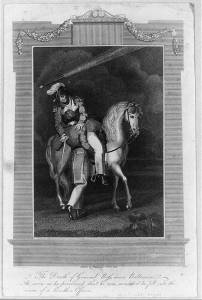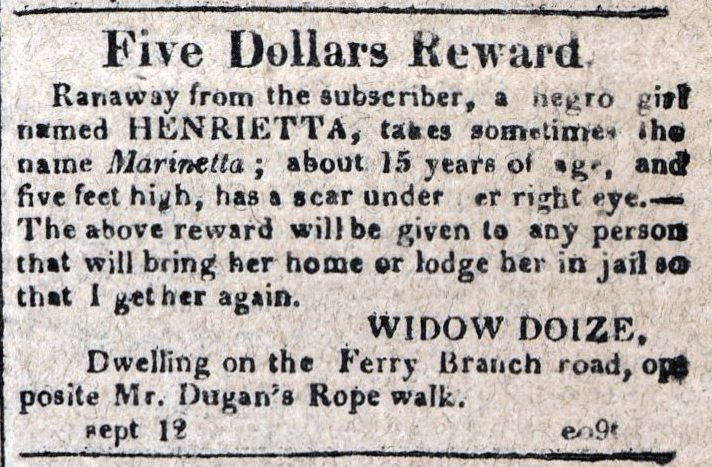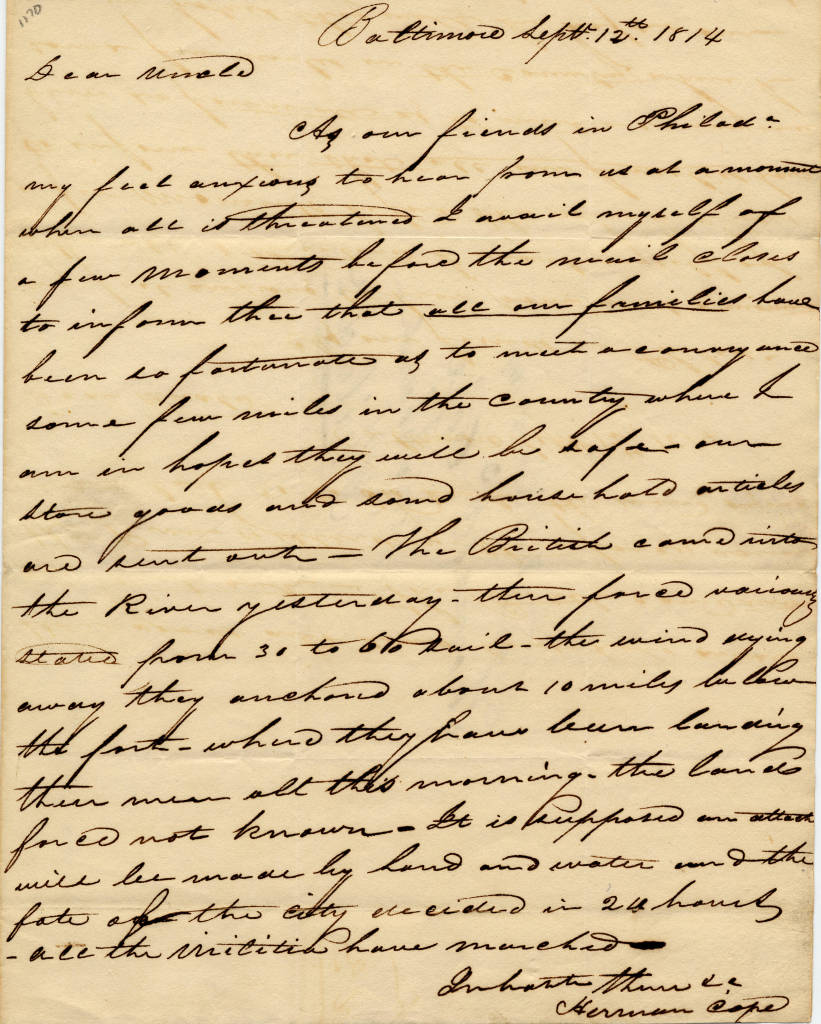On the morning of September 13, 1814, near 8:00am, the members of the Committee of Vigilance and Safety met. With around 15,000 troops in Baltimore one of the most pressing issues is how to keep the militia fed during the fight against the British.
Baltimore 13th September 1814
The Committee of Vigilance and Safety met pursuant to adjournment– The committee received a verbal communication from the Major General, requesting that, they would have the provisions of our fellow citizens in arms cooked every day for them during the actual investment of our city by the Enemy; therefore—
Resolved, That the several members of this Committee be and they are hereby requested to have as much of the provisions for our army cooked in his own Family and also by others, every day, as he possibly can during the present emergency—
The committee then adjourned to 3 O’Clock of this day—
While the committee met, British bombs continued to fall on Fort McHenry with as many as four or five bombs in the air at once. Two-thirds of the guns at the fort could not even reach the British bomb ships. Around 9:30am, George Armistead gave the order to cease firing. He had fifty-seven cannons at Fort McHenry but none of them had the range to reach the British ships.



